Hard rock band Brighton Rock used to love playing the clubs.
Don’t believe me? Just log on to the bands extremely well designed website. Click on to the Backstage tab to where it reads `Touring History’ and there before you, in chronological order is every gig the band has ever played.
From their opening date at Zollies in Oshawa, Ontario (14th June 1984), when they were known as Heart Attack to their 42nd date on 18th April 1985 when they renamed themselves Brighton Rock with a gig at the Colson Club in Sudbury, the mother of guitarist Greg Fraser recorded every single gig until their initial breakup, at Route 69 in St Catherines, February 4th 1991 (gig No.514.)
“Can you believe all those gigs we played,” marvelled band lead vocalist Gerry McGhee, from behind his desk at Burlington, Ontario based Isotope Records where he presides over Canada’s largest wholesale CD, DVD and vinyl operation. “We played 156 dates in 1987 in support of “Young, Wild & Free” and 127 dates in 1989 to promote “Take A Deep Breath” that was absolutely crazy, how the hell did we do all those dates, we were road hogs. We were touring constantly from one end of the country to the other, sometimes multiple dates in each venue, five or six sets a night. It was ridiculous but it certainly allowed us to hone our chops.”
 Yet as noted in Sean Kelly’s “Metal On Ice” book, despite all of their constant touring and with a strong fan base which allowed them to sell over 70,000 copies of their second record “Take A Deep Breath”, Brighton Rock was never allowed to expand beyond their domestic boundaries.
Yet as noted in Sean Kelly’s “Metal On Ice” book, despite all of their constant touring and with a strong fan base which allowed them to sell over 70,000 copies of their second record “Take A Deep Breath”, Brighton Rock was never allowed to expand beyond their domestic boundaries.
Technically, Brighton Rock seemed to have everything going for them. McGhee, Fraser, bassist Steve Skreebs, keyboardist Johnny Rogers (who replaced original keyboardist Martin Victor) and drummer Mark Cavazan created enough of a buzz in the clubs to be picked up for management by Steve Prendergast, manager of Honeymoon Suite who also arranged for them to sign with Warner Music Canada.
“Unfortunately, all those club dates worked to our detriment, we played at home too much” analysed McGhee. “The theory in those days was play the clubs to make as much money for management as possible. If our manager had invested some of that money in allowing us to tour outside of Canada we could have broadened our international reach. Pay to play was a big deal then, I know that if Prendergast had allowed us to tour Germany or Japan, we would have been far better off. We thought. Because he was having success with Honeymoon Suite that we would be successful also, but as it was, if we didn’t play we didn’t get paid.”
McGhee cites bad management contracts and a restrictive record deal with Warner Music Canada that stymied the band’s growth. “I knew it was a very bad deal, everyone I knew was telling me it was a bad deal but the rest of the guys, who saw the success Honeymoon Suite were having, felt I would ruin it for them if I didn’t agree to sign.”
 As it was, the band’s debut album “Young Wild And Free”, released in 1986, reflected the band’s promising potential, supported by a staggering 156-date domestic itinerary which included a nine-date opening tour for Triumph including a January 9th date at Maple Leaf Gardens. They even capitalized on a U.S distribution by executing an initial U.S club tour which took them through Florida and Texas.
As it was, the band’s debut album “Young Wild And Free”, released in 1986, reflected the band’s promising potential, supported by a staggering 156-date domestic itinerary which included a nine-date opening tour for Triumph including a January 9th date at Maple Leaf Gardens. They even capitalized on a U.S distribution by executing an initial U.S club tour which took them through Florida and Texas.
What Brighton Rock didn’t realize was that once Warner in the States released that debut album, if they didn’t like any subsequent records, the band could not negotiate with any other U.S label.
“That came back to bite us when we released “Take A Deep Breath” in 1988,” reflected McGhee. “That record sold great in Canada (over 70,000 units ) but Derek Sutton in the States didn’t want to release it, which meant that we were frozen out in the States.”
Stuck between a rock and a hard place, and worn out by continually having to play the domestic club circuit time and again (127 dates in 1989), Brighton Rock changed their sound to a more aggressive guitar-oriented sound by ousting popular keyboardist Johnny Rogers and replacing him with a second guitarist Greg Bioleau.
“In retrospect, a stupid decision on our part,” admitted McGhee. “It’s just something you do when things are going wrong. No disrespect to Greg but the band chemistry just wasn’t the same.”
Brighton Rock did manage to slip in a couple of dates in England which included a performance at London’s famous Marquee club. “The club manager took me upstairs to his office and showed my band contracts of bands like Queen and The Who and said, one day your contract will be on my wall,” reflected McGhee. “But unfortunately, Warner never gave us the chance to make that happen.”
By the time they released their third album; “Love Machine” in 1991, the band had ousted manager Prendergast but were still stuck with no U.S release for their record. “We actually had Giant Records in Los Angeles loving the record and wanting to release it. All it took was a phone call from Warner Music Canada releasing us from their deal, but they refused to release us. David Tollington, the label’s VP of A&R rationalized that “if we do it for you, we have to do it for everyone .”
That was the final straw for McGhee. Totally disgusted with the whole scenario, he pulled the plug on the band and moved to Los Angeles where he unsuccessfully auditioned to replace Vince Neil in Motley Crue. “I thought Love Machine was a great album but when I could see it was going to be shoved on the backburner by Warner, that was it for me. My atttitude was, `I’m outta here’.
Guitarist Greg Fraser replaced the late Paul Hackman in Helix for four years and then linked up with bassist Steve Skrebs to form the The Fraze Group in 1996. Meanwhile McGhee returned to the Burlington area where he launched a CD/DVD wholesale business (Isotope Music) – which now ironically distributes and sells more copies of his band’s product globally than Warner Music Canada ever achieved during the band’s heyday.
[youtube width=”600″ height=”338″ video_id=”dNdNQXA33qw”]
Although the group members stayed in touch, it took a tragic auto accident to a nephew of McGhee’s which sparked the band’s 2001 reformation. “I wanted to do something to respect his memory and a next-door neighbour suggested `why don’t you put the band back together again?”
So Brighton Rock, with keyboardist Johnny Rogers back in the fold, reformed at the Caledon Arena for a Rock For The Wish concert in September which raised $25,000 for the Children’s Wish Foundation. “The gig went well, everyone had fun and I said to them, because you guys came back and helped me out, if you guys want to keep playing, I’m on board”.
This sparked a brief resurgence in the band where they recorded a 1992 live record “A Room For Five Live” and even toured England and Germany. But Brighton Rock eventually drifted apart again as McGhee continued to develop his Isotope business and it wasn’t until October 2008 when the band reunited again to participate in a fund-raiser for Coney Hatch frontman, Carl Dixon, who was still rehabing from a near fatal accident in Australia. This would be the band’s first Toronto appearance in 20 years but they drifted apart again shortly after.
“I think when everyone started hitting their 50’s it hit a nerve with the guys,” assessed McGhee. “When we got back together we realized how much fun we always had together. We never really officially broke up, we just kind of drifted apart. But when we got together we realized we always had fun – and now with no pressure on us, it was like, why not!”
An invitation to play the Firefest music festival in Nottingham England on October 2012 prompted the band to organize a rehearsal gig in April at Toronto’s Rockpile West and they would repeat the formula in 2013, setting up a return to Nottingham with another rehearsal at the Rockpile West.
“We were so well taken care of at Firefest,” raved McGhee. “We were treated like stars and the crowd response was very positive. It made us feel that, yes, we still had an audience in Europe which was very reassuring.”
“Brighton Rock’s cover of Kiss’s Creature Of The Night was featured on a Kiss tribute record “A World With Heroes” August 2013, and earned rave reviews as being better than the original. It’s a recording that is being saved to add to more tracks that will be released as the band’s next studio recording sometime next year.”
“I think we have nine tracks demoed, they are just waiting for me to add the vocals,” noted McGhee. “I am so busy with Isotope, we are just opening a London office and flying backwards and forwards, but we will eventually get the new record out.”


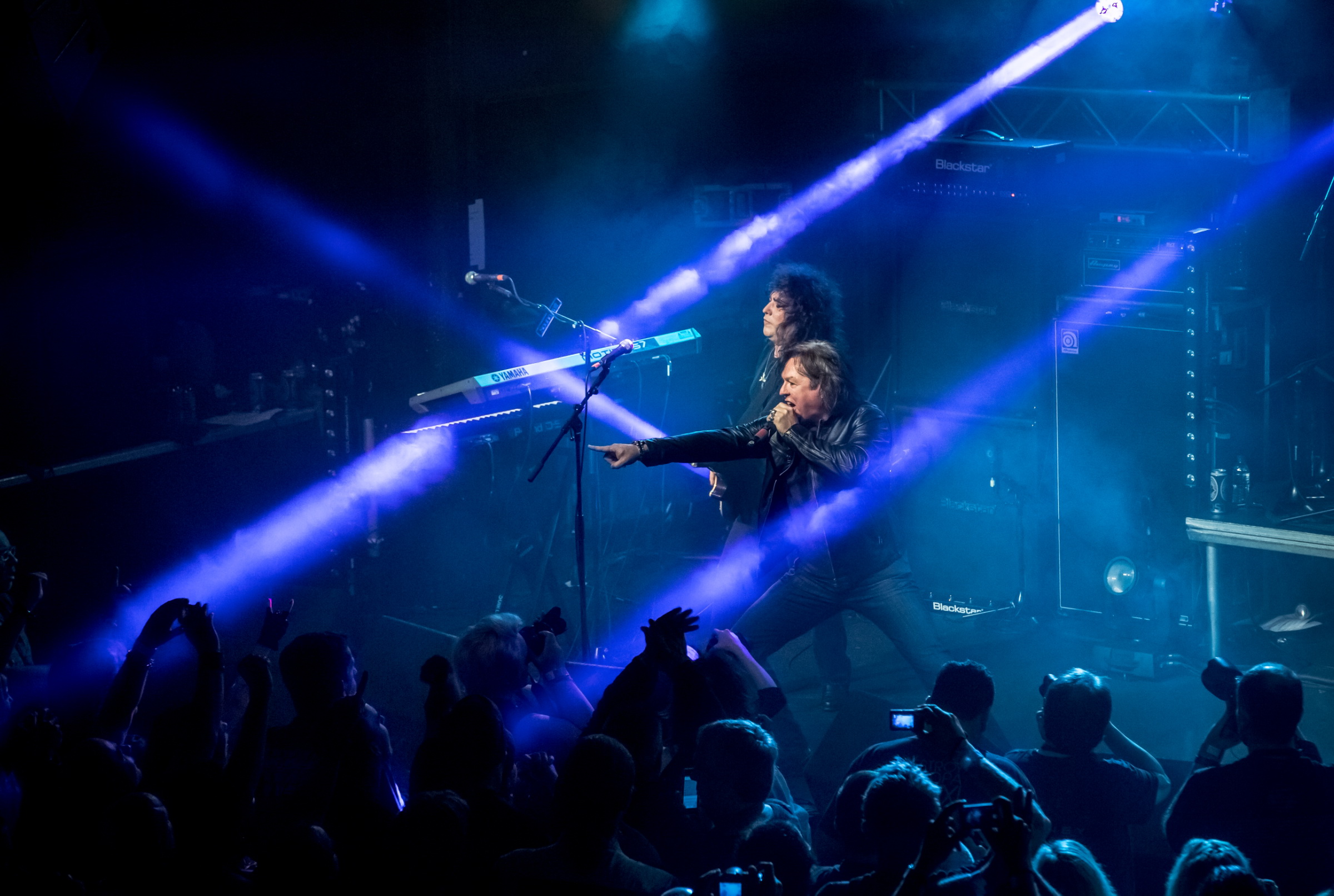

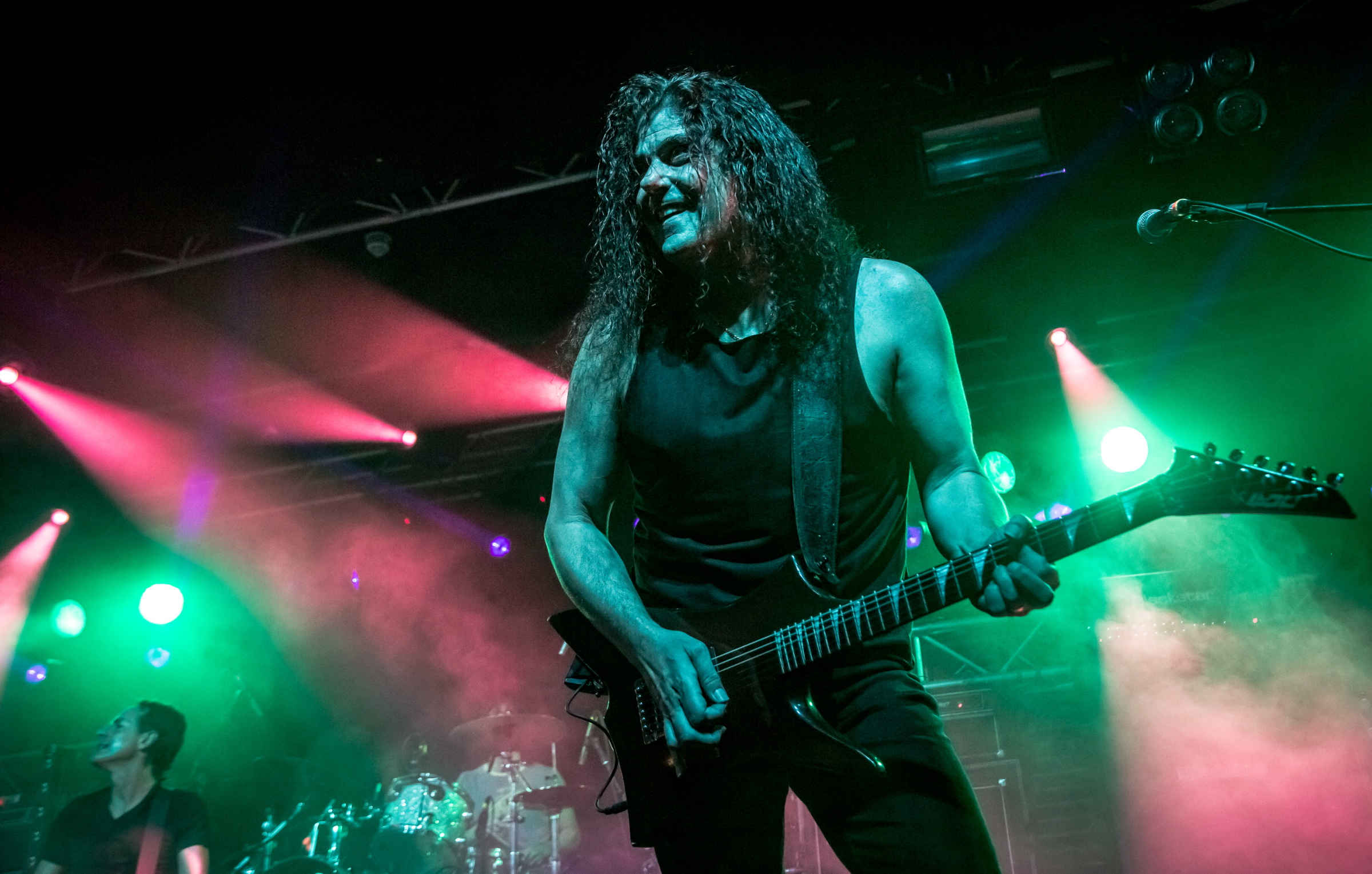
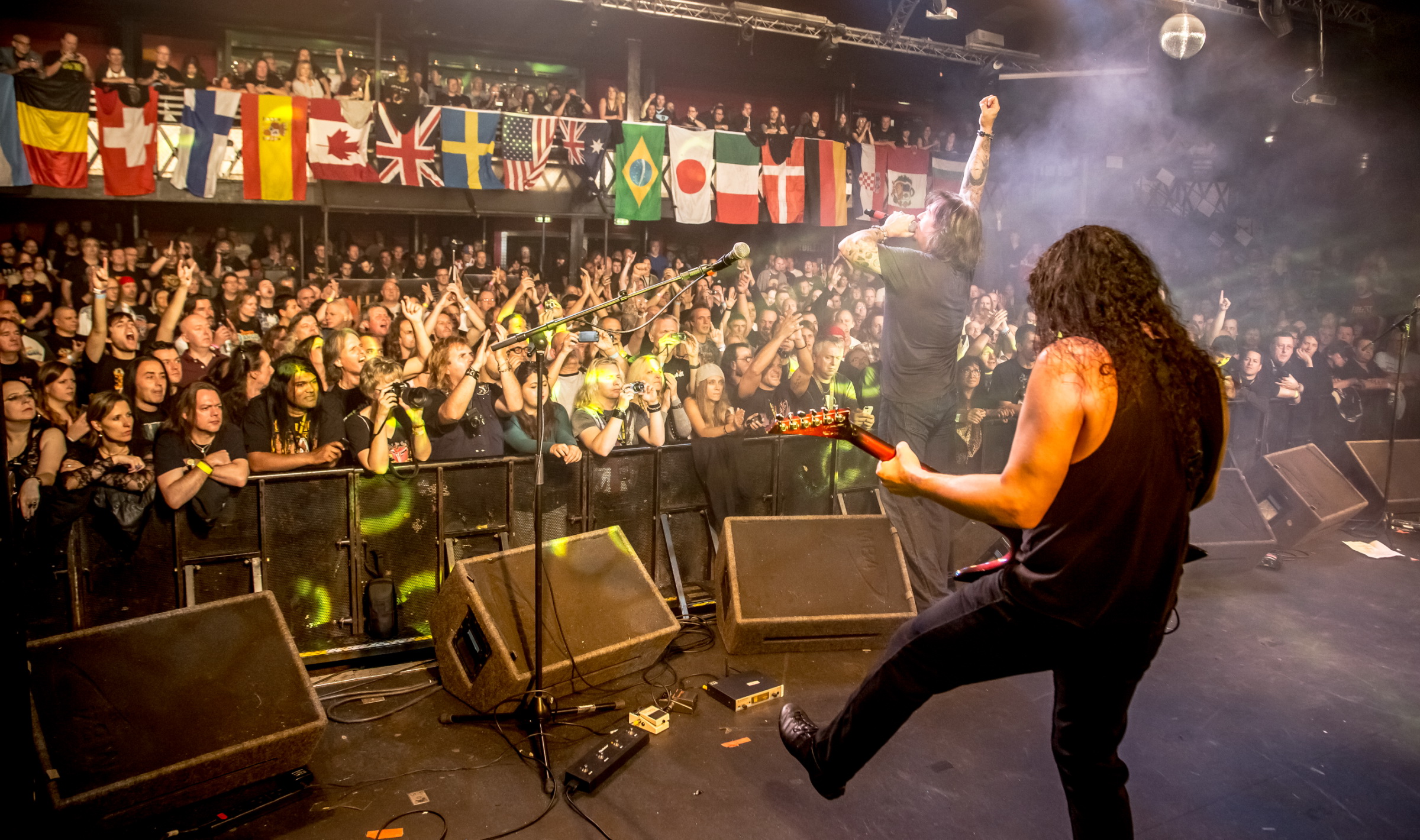
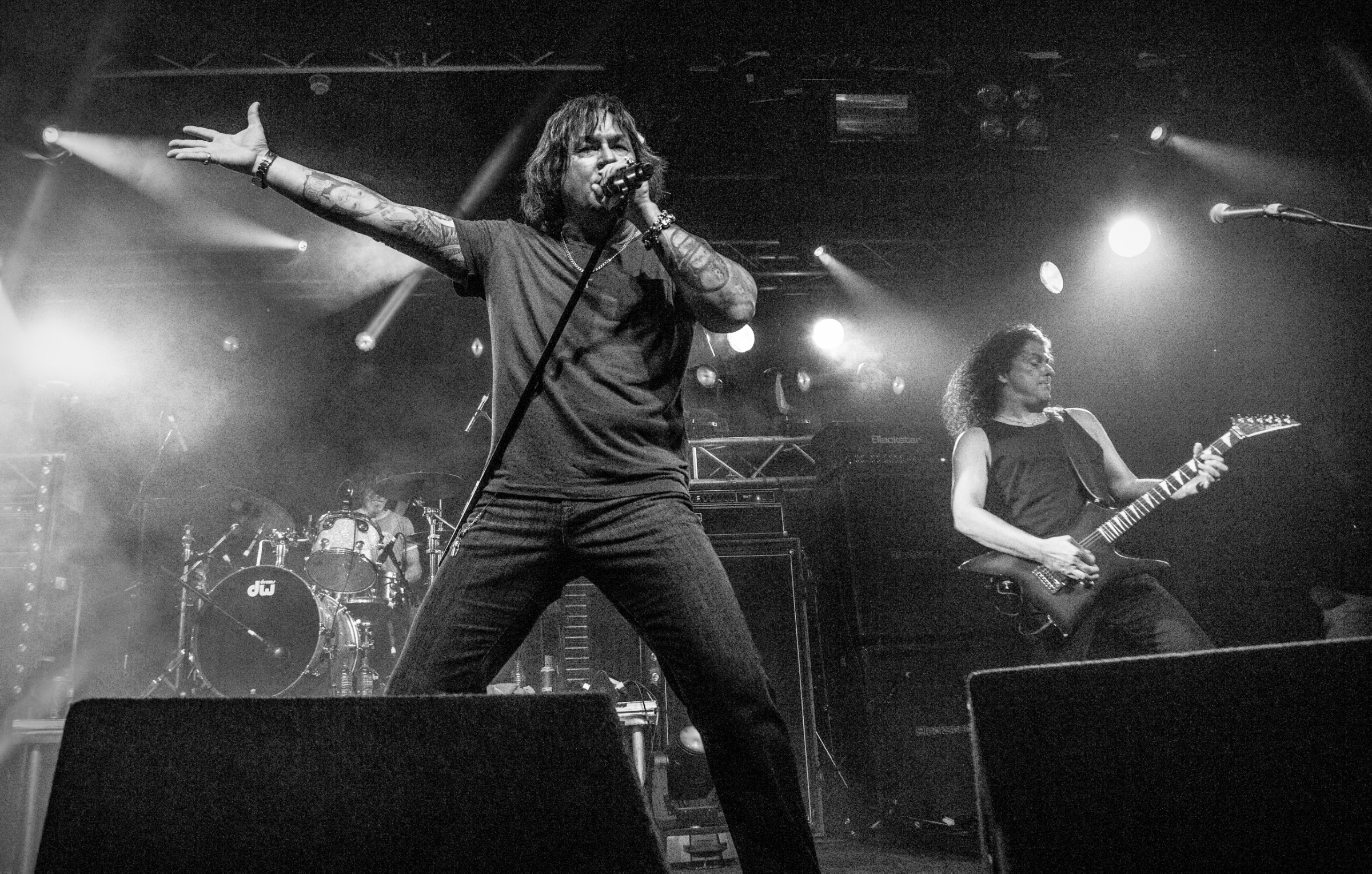
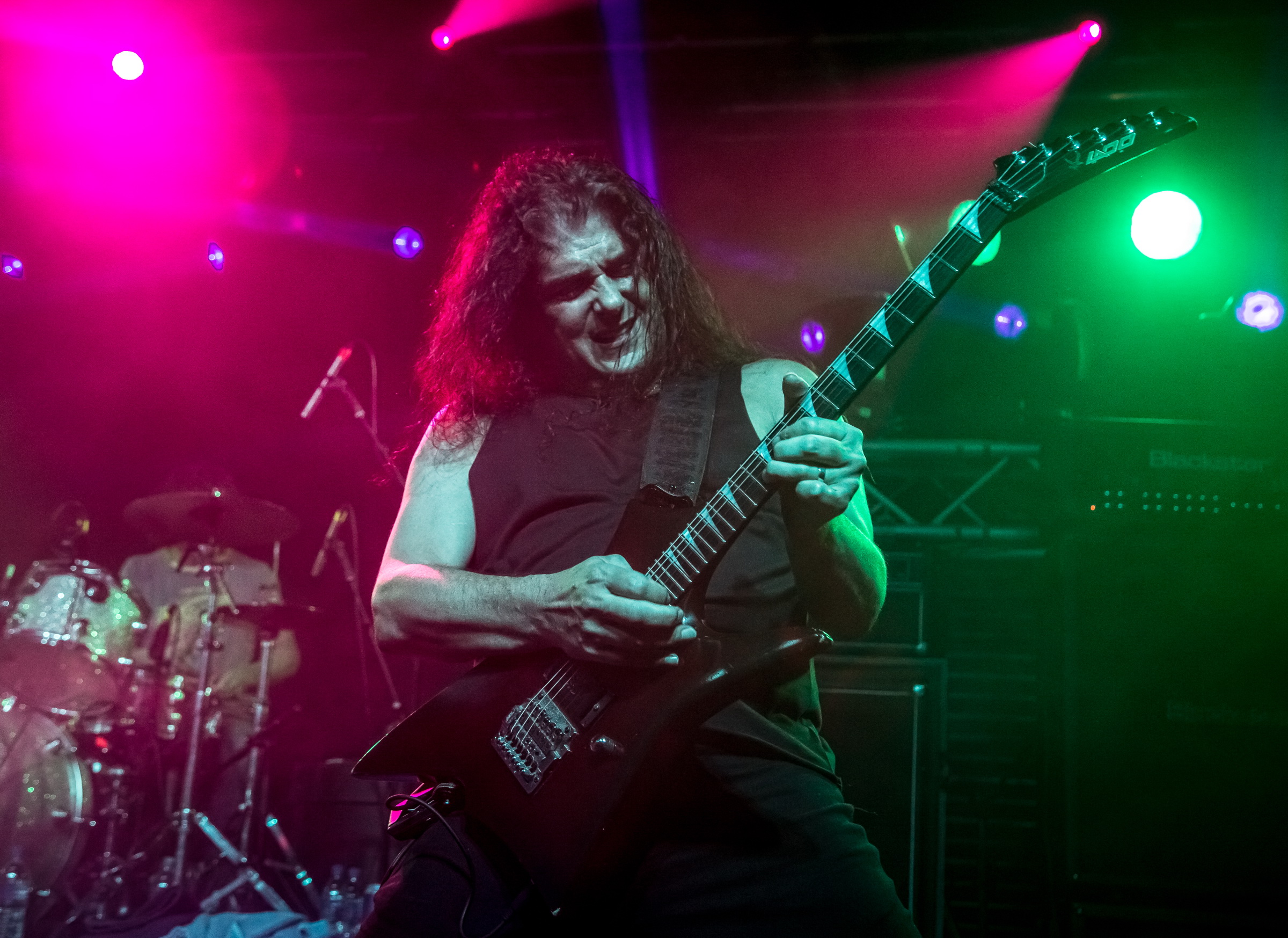
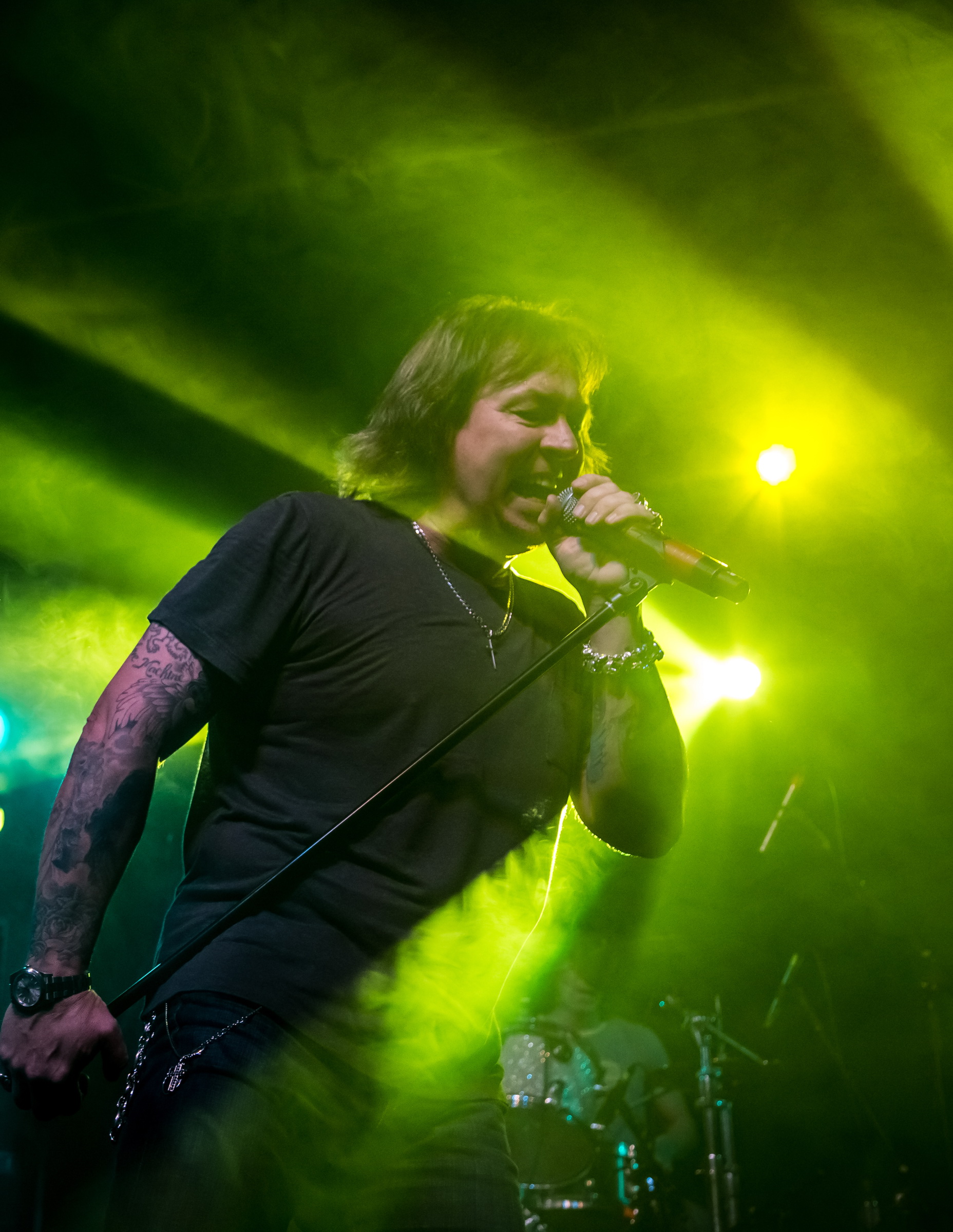
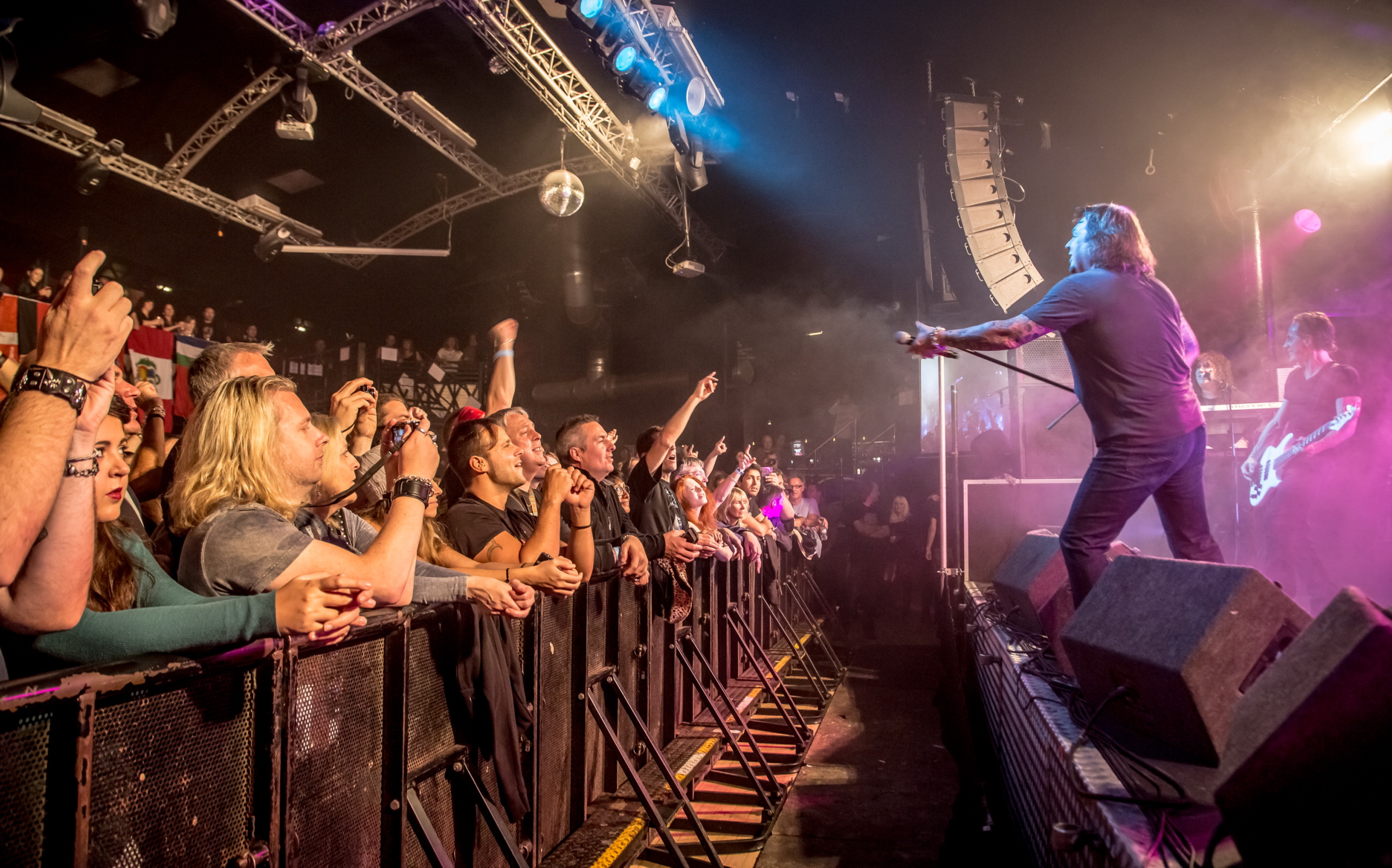
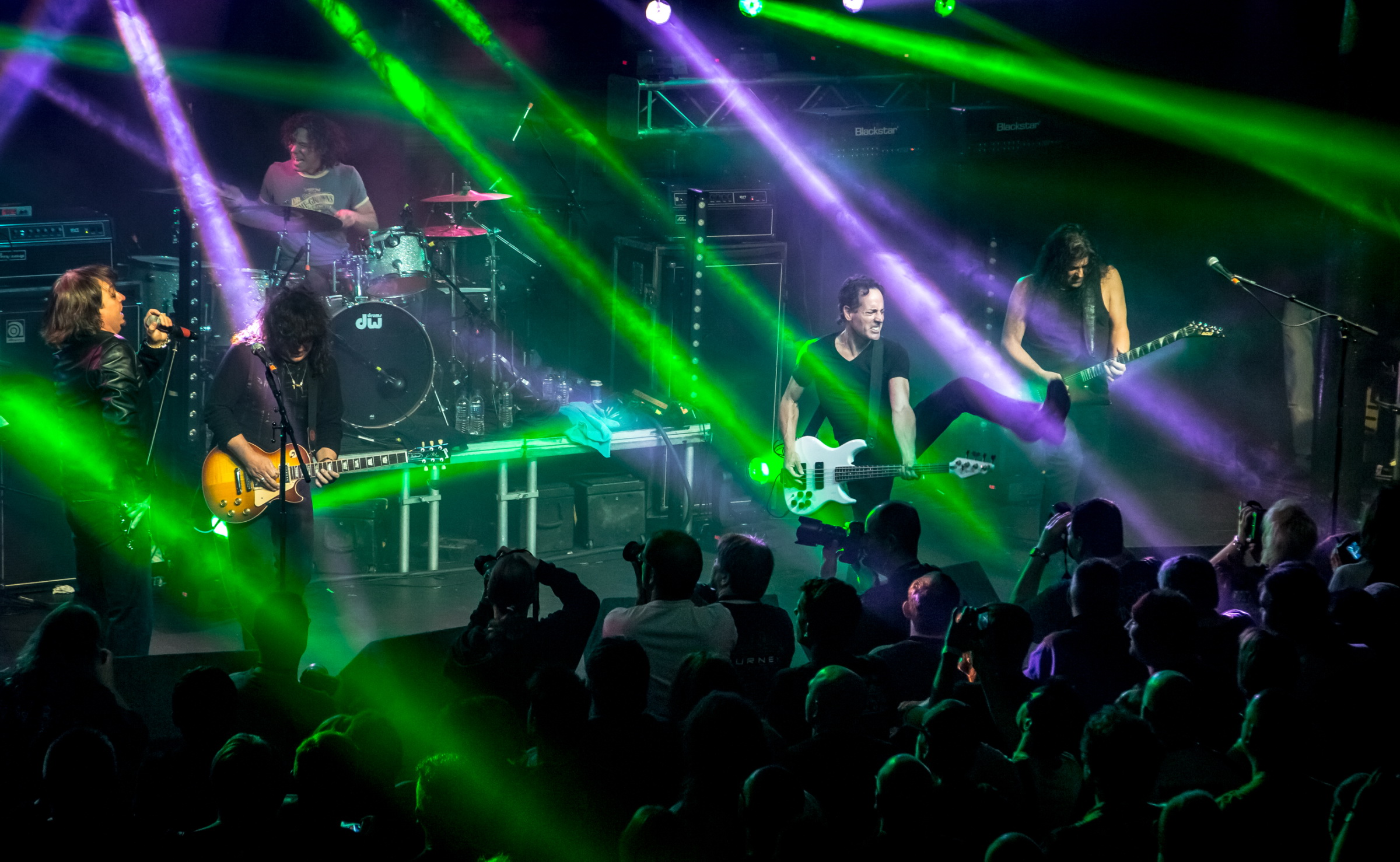
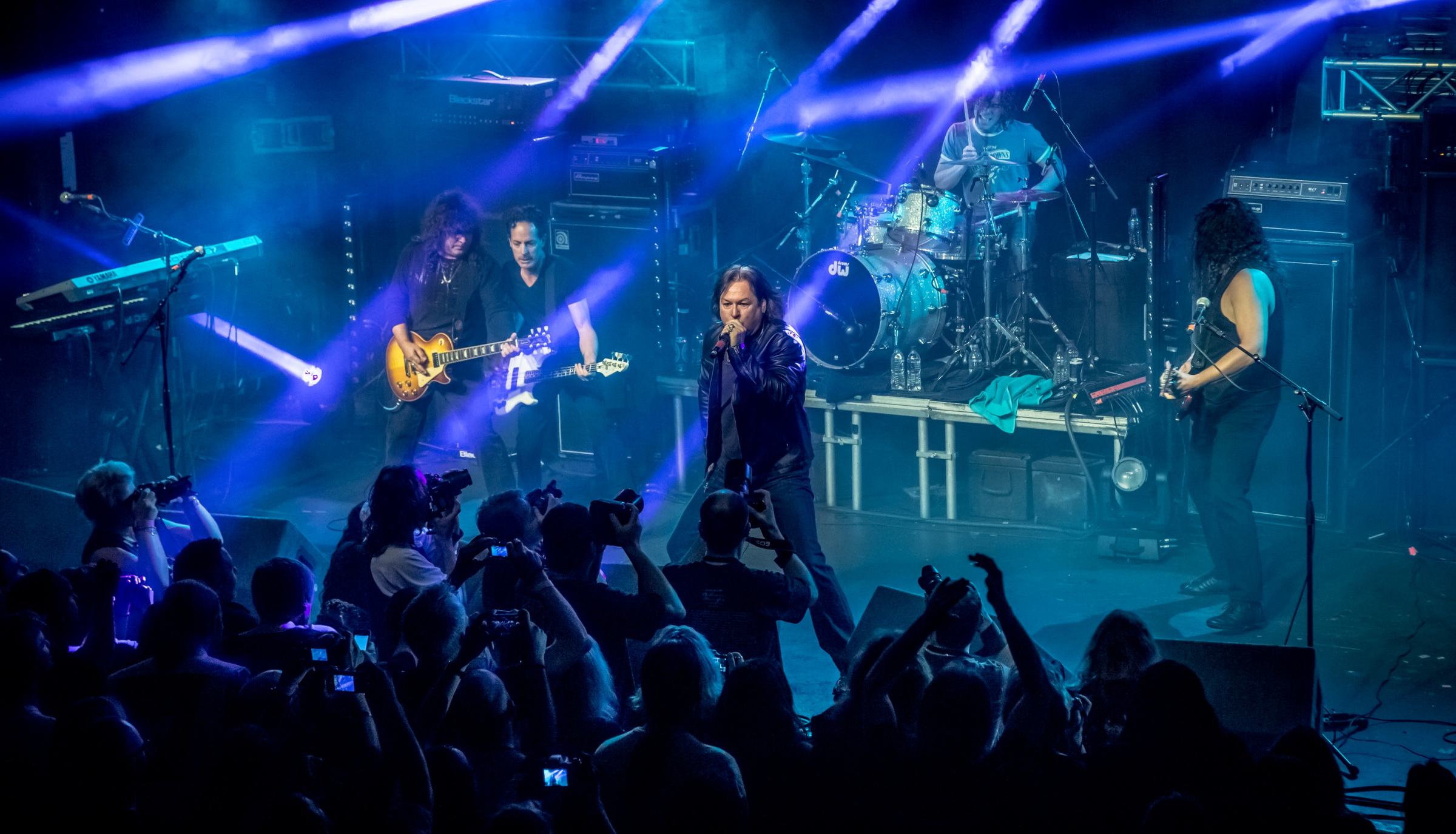
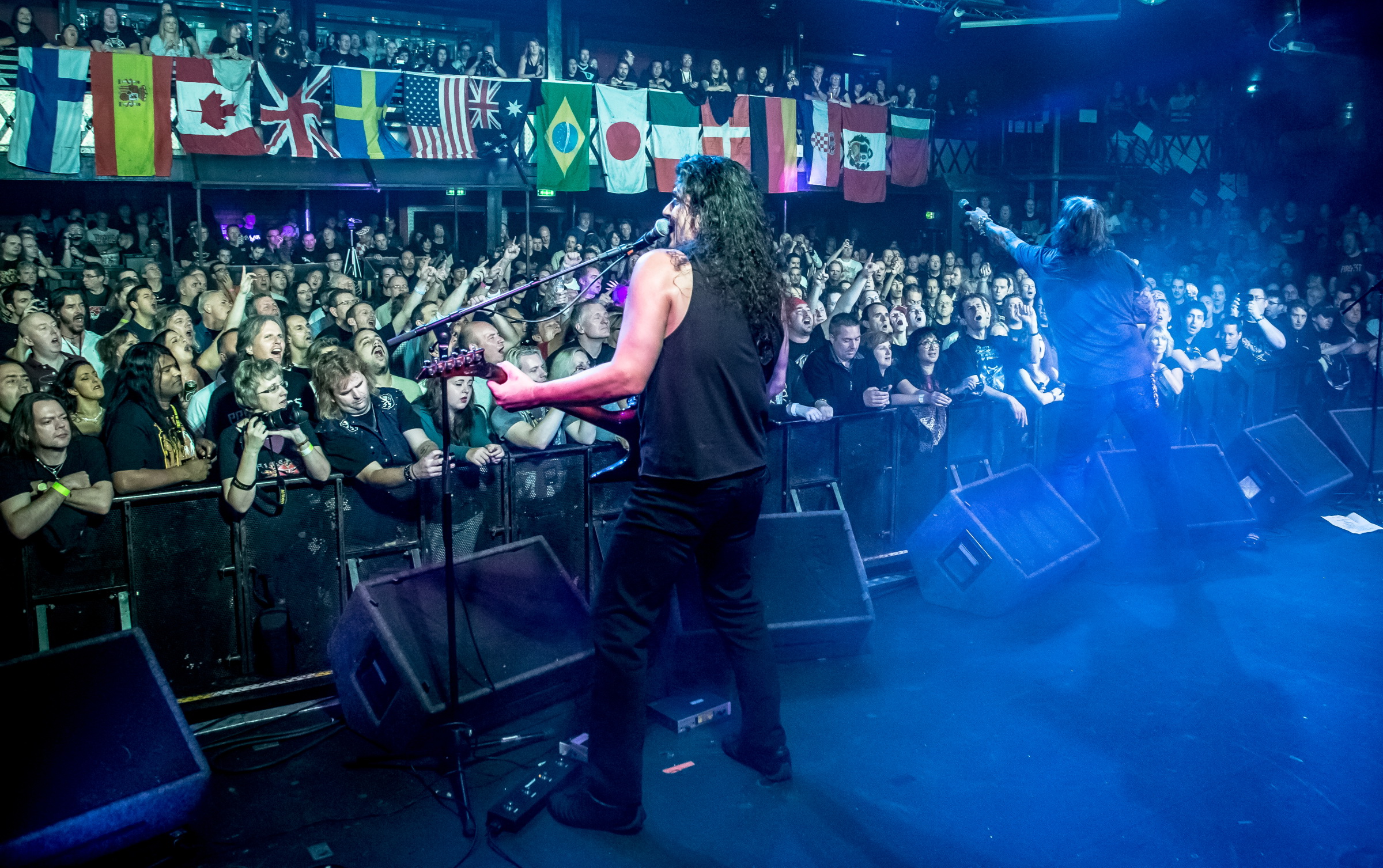
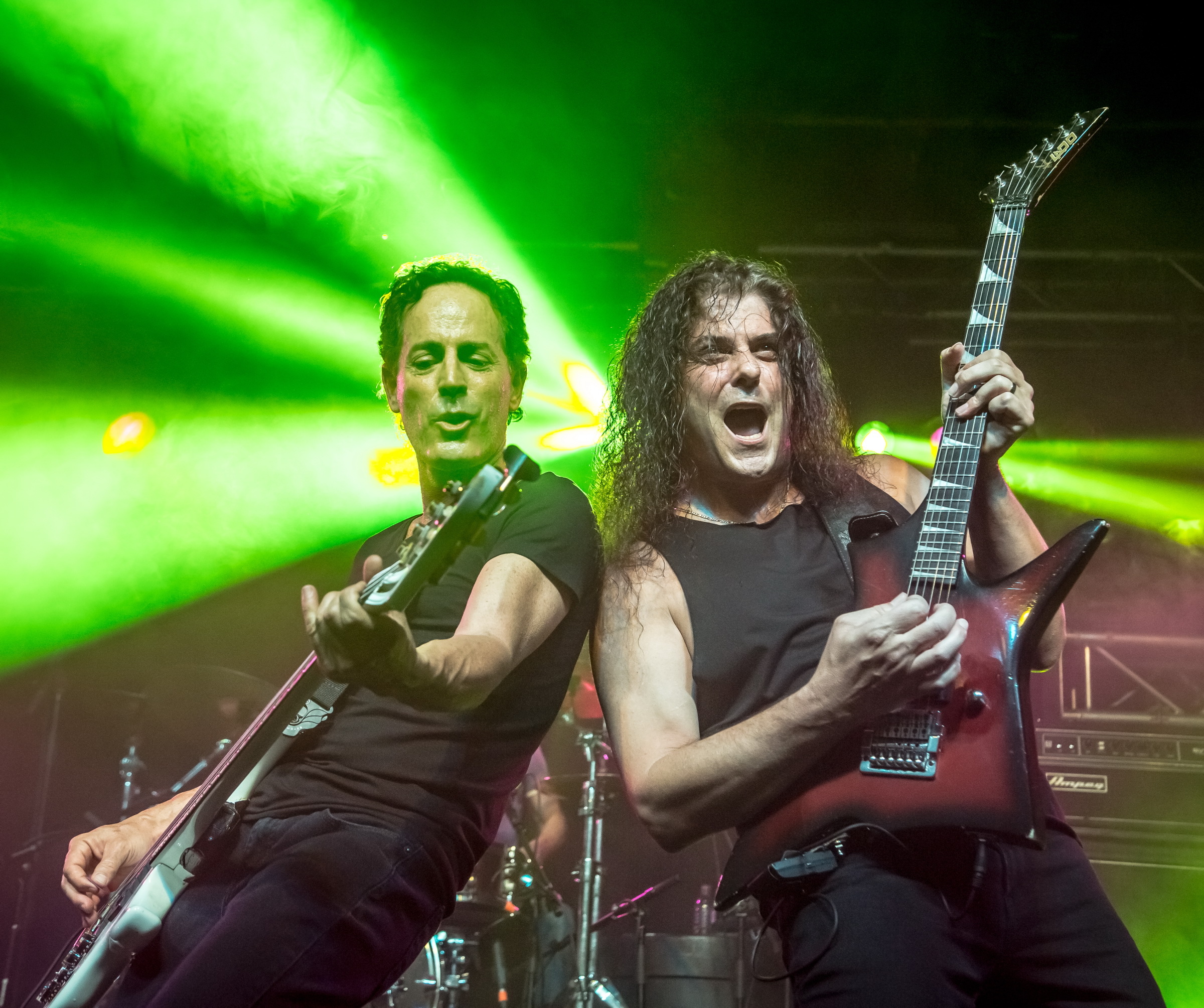
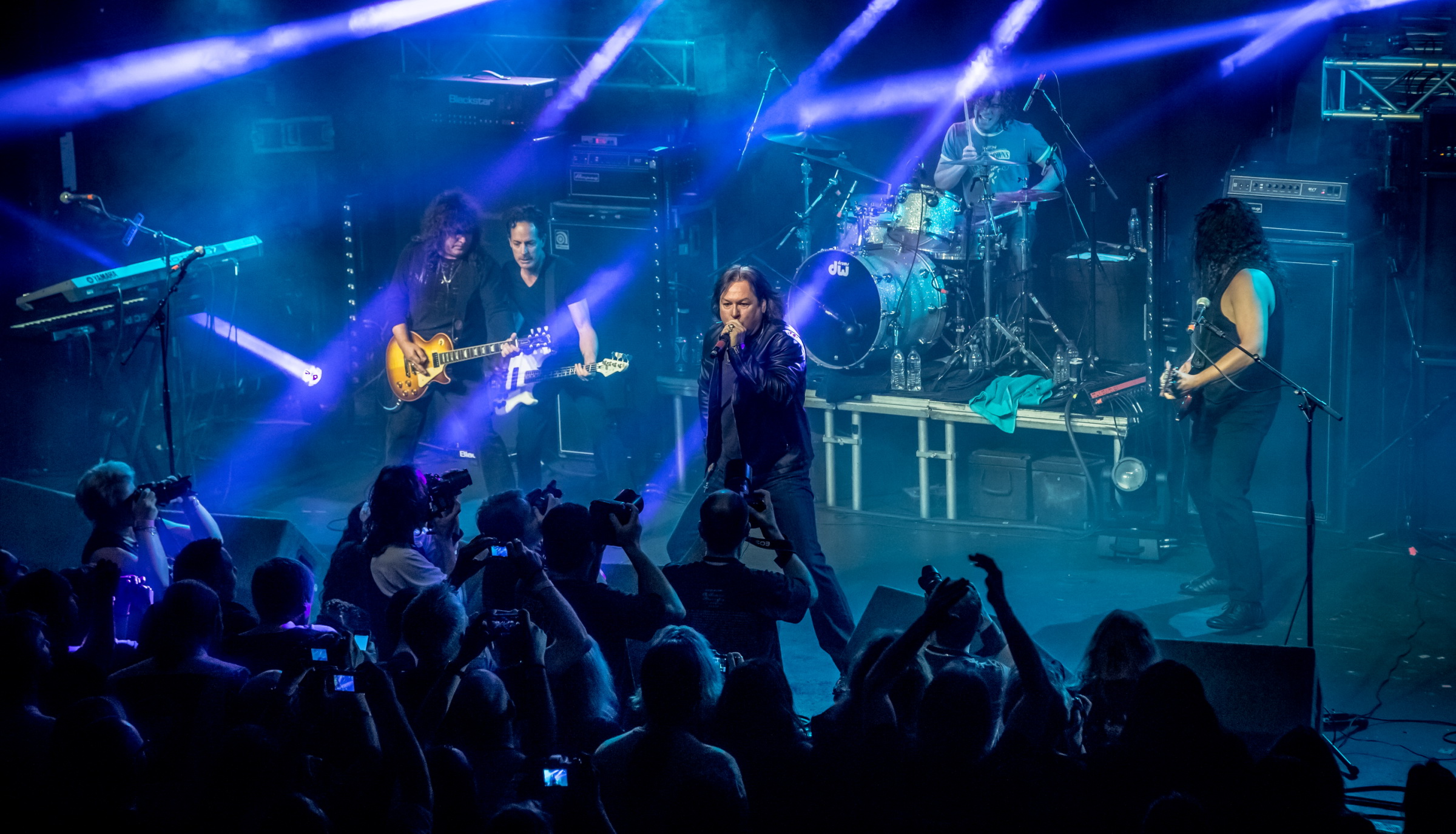
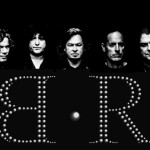
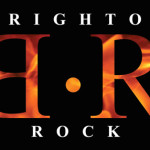
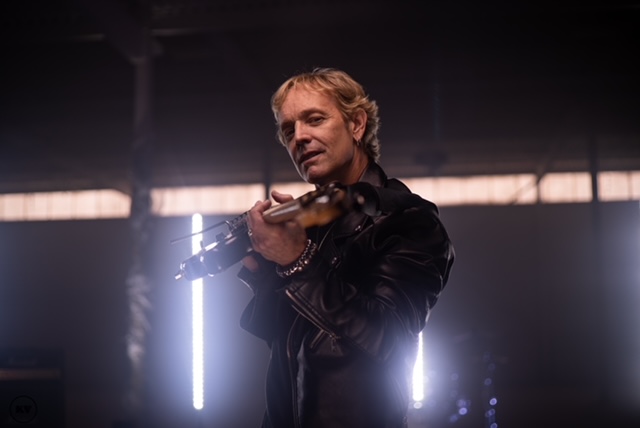

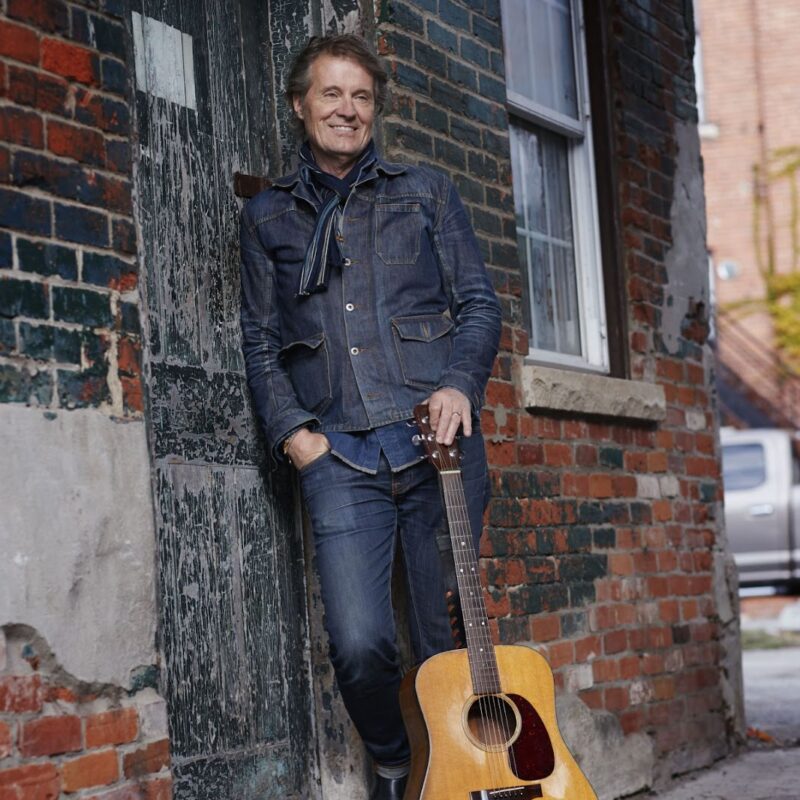




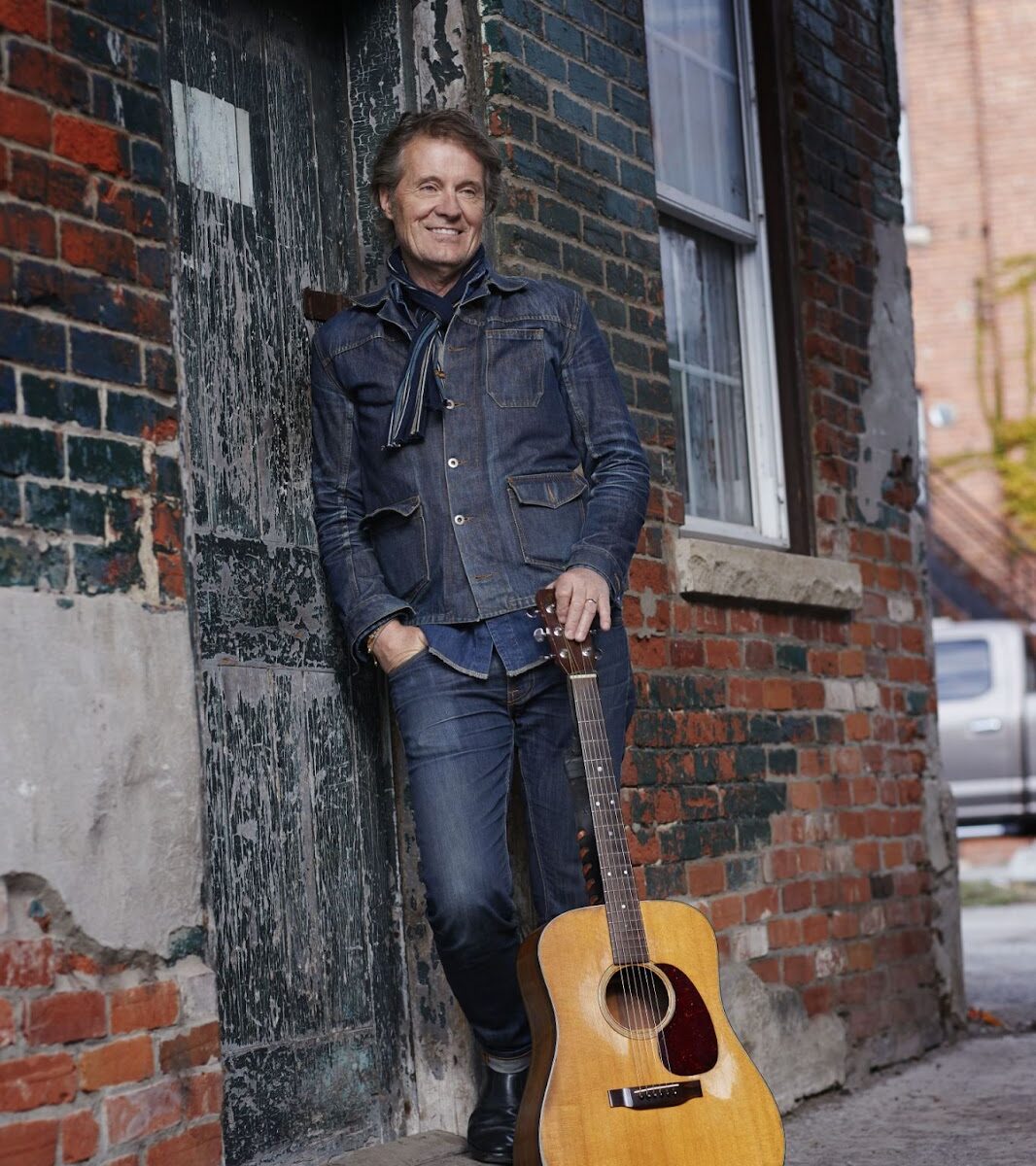

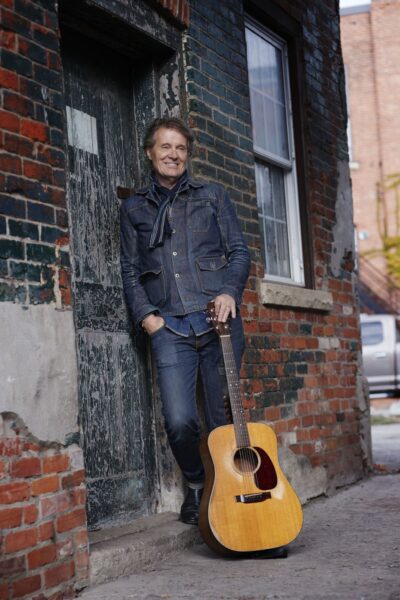




Comments are closed.